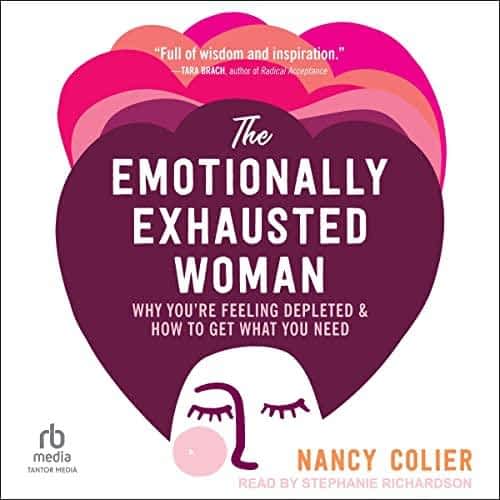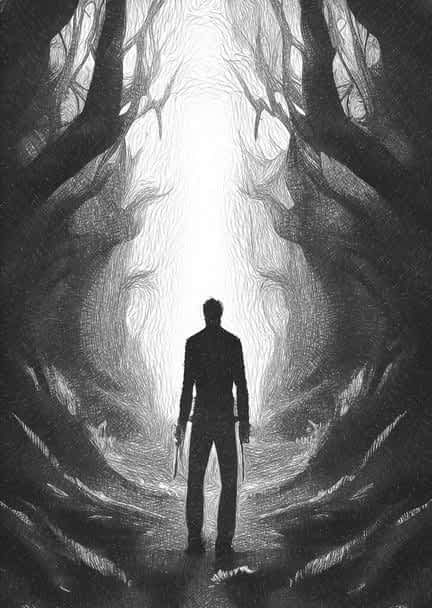7 Critical Indicators of Emotional Exhaustion You Shouldn’t Ignore
Have you ever felt emotionally drained and exhausted, but brushed it off as just a part of life? Emotional exhaustion is not just a state of mind, it’s a critical indicator of deeper issues that you should not ignore. Sometimes emotional exhaustion may be caused by a rocky, toxic relationship that has left you seething with resentment. Maybe it’s a narcissistic child, a stressful career, or you are a full time caretaker for a family member and haven’t had a break in years.
💡Key Highlights
- Why emotional burnout quietly wrecks your body before you even notice
- What your stomach, heart, and immune system might be trying to tell you
- The hidden link between stress and feeling sick all the time
- How your hormones can get hijacked by unspoken emotional overload
- When exhaustion stops being “just stress” and turns into something bigger

💡There is a book called “The Body Keeps the Score” that does a deep dive into the physical affects of of emotional exhaustion, as well as other external factors, and it’s quite fascinating. Our bodies are deeply physically affected by our emotions. I am sure of this, because my body tells me daily, but I didn’t know why I was so tired in every way. I didn’t have a name to put with the feeling.
Top 7 Warning Signs of Emotional Exhaustion
Emotional exhaustion doesn’t always hit like a sudden storm. It sneaks up quietly, often disguised as “just a rough week” or “I’m just tired.” But over time, it wears you down. You stop feeling like yourself, and the warning signs start stacking up until you can’t ignore them anymore.
😩1. You’re Always Tired, Even After a Full Night’s Sleep
This isn’t the regular kind of tired that a nap can fix. When you’re emotionally exhausted, it’s like your batteries never fully recharge. You might sleep eight hours and still wake up feeling like you didn’t sleep at all. Even the smallest tasks like making breakfast, or answering a text can feel like too much.
😩2. Motivation? What’s That?
Things you used to handle without thinking now feel impossible. Work projects sit unfinished, laundry piles up, texts go unanswered. When emotional exhaustion kicks in, motivation doesn’t just dip – it disappears. You’re not lazy, you’re drained. And the more you fall behind, the more overwhelmed you feel.
😩3. You’re Snapping at Everyone (Even If They Don’t Deserve It)
Patience is gone. Tolerance is low. Emotional exhaustion can make you way more irritable and reactive than usual. The little stuff, like traffic, noisy neighbors, your partner’s chewing, can suddenly feels like a personal attack. You’re not trying to be short-tempered, but your nerves are already fried.
😩4. Your Brain Feels Foggy and Forgetful
Ever walk into a room and completely forget why you’re there? Or reread the same sentence five times and still not absorb it? That’s emotional exhaustion playing tricks on your brain. It makes concentrating hard, messes with your memory, and leaves you feeling spaced out or scattered.
😩5. You Feel Numb or Detached from Everything
One of the harder signs to spot is emotional detachment. You might stop caring about things you used to love, or feel disconnected from people close to you. It’s like going emotionally “offline.” You’re still there, but you’re not really there. You might even feel cynical, like nothing matters anymore, and that can be scary.
😩6. Your Sleep Is a Total Mess
It’s cruel, really. You’re exhausted, but you can’t sleep. Or you fall asleep only to wake up at 3 a.m. with your mind racing. Emotional exhaustion messes with your nervous system, making it tough to unwind. And without real rest, the cycle just keeps spinning.
😩7. Your Body Starts Sounding the Alarm
Headaches, tense shoulders, stomach issues, getting sick more often – when your emotions are maxed out, your body feels it, too. Emotional exhaustion can show up physically, like your body’s way of saying, “Hey, something’s not right.” And it’s usually not wrong.

How Being Emotionally Exhausted Affects Your Body
We talk a lot about “shutting down” when we’re emotionally exhausted, but sometimes, it’s not just a figure of speech. When you’ve been emotionally running on empty for too long, it can take a real toll; not just on your mental state, but on your body too.
That kind of deep emotional fatigue isn’t just in your head. It can mess with everything from your immune system to your hormones. Let’s break down how that happens:
🌀Your Mind Starts to Spiral
This is the part we often try to push through, but emotional exhaustion is closely tied to depression and anxiety. If things feel heavier than usual, like you’re stuck in a fog or everything sets you on edge, it’s more than “just stress.” And it deserves attention.
⬇️Your Immune System Starts to Slip
When you’re always stressed, your immune system can’t keep up. You might notice you’re getting sick more often or that it takes forever to shake off a cold. Your body’s defenses are just… tired.
❤️🩹Your Heart Feels It Too
Chronic stress and emotional exhaustion can raise your blood pressure and strain your heart over time. It’s not just feeling “burnt out” – it’s real risks to your cardiovascular health.
🤢Your Gut Reacts
Ever felt your stomach twist during stress? That’s no coincidence. Long-term emotional stress can trigger digestive problems like bloating, cramps, and even things like IBS. Your gut and brain are seriously connected.
🤪Your Hormones Get Out of Whack
All that constant stress throws your hormones into chaos. Your adrenal glands (which help you deal with stress) can get overwhelmed, leading to fatigue that sleep can’t fix. It’s like your body’s internal battery never fully recharges

How Do You Recharge When Feeling Emotional Exhaustion?
When you’re emotionally exhausted, everything feels heavier: your body, your thoughts, even your joy. The good news is you can feel like yourself again. It’s not about doing more, it’s giving yourself what you need to heal and breathe again. Here’s how to start:
⚡ Embrace Self-Care Like It’s Non-Negotiable
Self-care isn’t selfish – it’s survival. And it doesn’t have to be fancy. Light a candle and read something that makes you smile. Take that long, hot bath. Paint, doodle, knit, binge your favorite cozy show. Whatever makes your heart exhale? Do more of that. Peace in your own company is priceless.
⚡ Make Sleep a Sacred Ritual
If you’re emotionally exhausted, rest isn’t optional, it’s medicine. Set a sleep schedule that actually feels good. Ditch the phone an hour before bed. Make your room cozy and calm. Sleep is your reset, and it can do wonders for your emotional well-being.
⚡ Unplug From the Chaos
Seriously, log out. Take a break from the constant noise: emails, doomscrolling, endless notifications. Your brain wasn’t built for nonstop input. A little digital detox can give you the space to actually feel your feelings and reconnect with yourself.
⚡ Feed Your Body, Fuel Your Mood
What you eat affects how you feel. That doesn’t mean a strict diet, it just means choosing foods that love you back. Whole foods, colorful veggies, plenty of water. Fuel that supports your body also supports your mood and energy.
⚡ Move a Little, Feel a Lot Better
You don’t need to run a marathon, just move. A slow walk, a stretch session, a gentle yoga flow. Moving your body helps release the stress your mind is holding. Even ten minutes can shift your whole mood.
⚡ Let Someone In
You don’t have to carry it all alone. Talk to someone you trust – a friend, a therapist, someone who gets it. Just saying out loud, “I’m emotionally exhausted,” can lift a little of the weight. Being heard matters.
⚡ Protect Your Peace with Boundaries
It’s okay to say no. It’s okay to not reply right away. It’s okay to put you first. Setting boundaries isn’t rude, it’s healthy. Guard your time, energy, and mental space. Your mental and emotional well-being is worth protecting.

Tips for Recovery When You’re Emotionally Exhausted
Coming back from emotional exhaustion isn’t about bouncing back overnight. It’s a slow, intentional climb out of the fog. You don’t need to rush it. Here’s what real recovery can look like:
✔️Lean On Your People
Recovery is easier with support. Reach out to your people; the ones who listen without fixing, who show up without judgment. Or find a community that gets what you’re going through. Everyone needs a soft place to land.
✔️Start By Being Honest With Yourself
First things first; acknowledge how you’re really feeling. Say it out loud if you need to: “I’m emotionally exhausted.” No guilt. No shame. Just truth. You’re allowed to feel this way, and admitting it is the first powerful step.
✔️Figure Out What’s Draining You
Take a minute (or a whole journal page) and reflect: What’s been weighing you down? Is it work? Certain people? Saying yes when you mean no? Knowing your triggers helps you protect your peace going forward.
✔️Talk to Someone Who Gets It
You don’t have to untangle this alone. A therapist, counselor, or even a wise friend can help you process the heavy stuff and find ways to cope that actually work. There’s real strength in reaching out.
✔️Give Yourself Permission to Pause
If you can take a break from work, from obligations, from overdoing everything – do it. Rest is productive when you’re emotionally exhausted. Sometimes the most healing thing is a deep breath and zero expectations.
✔️Try Simple Relaxation Tools
Little things can make a big difference. Deep breathing. Gentle meditation. Tensing and relaxing your muscles one by one. These calming rituals can quiet your nervous system and make space for healing.
✔️Ease Back Into “Normal” Slowly
When you’re ready, take it slow. Don’t dive headfirst back into everything that wore you down in the first place. One task at a time. One day at a time. You’re rebuilding, not racing.

Wrapping Up
Spotting the signs of emotional exhaustion early is one of the best things you can do for your mental, emotional, and physical health. When we ignore the signals, they don’t just fade- they tend to grow into something heavier like anxiety, or even depression. That’s why it’s so important to show yourself (and others) some real compassion and take those warning signs seriously.
You don’t have to keep losing yourself to keep the peace. It’s okay to stop shape-shifting for others, and to finally live in a way that feels true to you. Not just surviving, but actually being you – unapologetically, beautifully.
The more we pay attention to how being emotionally exhausted affects us in every way, the better we get at handling it. With the right tools and a little grace, you can bounce back stronger and more grounded, even when life feels like a lot.

Before You Go…
If emotional exhaustion has you feeling depleted, I suggest this book written exclusively for this issue.
If you’re anything like a lot of women today, you might be carrying a quiet storm of exhaustion, stress, anxiety, maybe even a deep sense of “something’s off.” You’ve probably spent years being everything for everyone, tending to their needs while yours sit on the back burner. That kind of emotional labor adds up.
In “The Emotionally Exhausted Woman,” therapist and spiritual teacher Nancy Colier offers the understanding, and support you’ve been seeking. With her down-to-earth guidance, you’ll start to see your needs, not as something to feel guilty about, but as something worth honoring. You’ll learn how to recognize the emotional burnout that comes from always putting yourself last, and more importantly, how to stop doing it. This isn’t about bubble baths and pedicures (though those are nice). It’s about real self-respect. The kind that helps you set boundaries, listen to your intuition, and show up for yourself without apology.


This post may contain affiliate links. I earn from qualifying Amazon purchases at no extra cost to you. This content is for informational purposes only and is not a substitute for professional advice. Read full disclaimer.
Thank you for reading this post, don't forget to subscribe!







